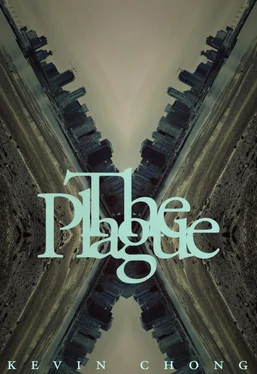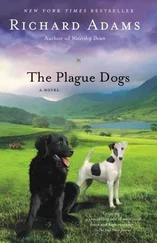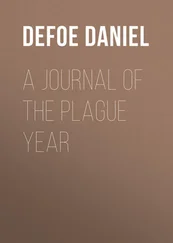In her mid-twenties, Cassidy went through her mother’s belongings in the attic and learned the identity of her father. “When I saw his picture, I thought I recognized him,” she said in a video interview that Horne-Bough had conducted. “I didn’t see a family resemblance, but he has that kind of face that made me think he was famous.” It was her boyfriend who suggested she contact Vancouver’s wealthy mayor. (Cassidy’s boyfriend, it later emerged, handled the negotiation for the rights to her story.)
So she sent Parsons a letter. When she didn’t receive a reply, she assumed it had been misplaced by someone at the mayor’s office. Two weeks later, a lawyer contacted her, asking for a DNA sample. She complied. Before the results came in, she received a call from Parsons. “It was like I was talking to a voice I’d been hearing in my head my whole life,” she told Horne-Bough. “I’d heard it but never knew who it was.” Cassidy and her father spoke for hours. They wept together over the phone. He arranged to fly her to Vancouver, which is when the incident, later confirmed by the mayor in a terse statement, took place.
As Siddhu reviewed this information, Romeo Parsons appeared in the hotel lounge. He wore sunglasses, the rest of his face obscured by a mask and a week’s worth of beard. His hair was uncombed, his posture bowed. He was dressed in dark jeans and an untucked sports shirt. Out of habit, they forgot not to shake hands. There was something unpracticed about the gesture for each of them. Siddhu apologized for applying hand sanitizer afterward. Parsons removed his sunglasses and mask as he took the seat facing the empty beach. The waitress, who asked Siddhu if he wanted his regular, took the mayor’s request for a mint tea without noticing of him.
Siddhu placed his iPhone in the middle of the table. “Why are you talking now?” he asked.
“I thought the people of Vancouver needed some distraction,” he joked. “If I can’t save lives, I can do that.”
“It makes sense for you to clear the air,” Siddhu suggested. “If you’re going to remain as mayor, you’ll need to show your face again. You’ll need to address the questions people have, so that you can move on.”
Parsons looked over Siddhu’s shoulder as their hot beverages arrived. At first, the words fell out of his mouth like broken teeth. “It took me this long to make peace with what you’ve just laid out.” He held his mug with two hands, and Siddhu wasn’t sure whether it was because he felt cold or weak. “I haven’t been a public figure for long. I used to make money in real estate. I found homes for wealthy people where poor people used to live. I felt indirectly responsible for the Annex, and all the damage that followed because those developers followed my blueprint. I founded a couple of charities to make myself feel better, but they were like Band-Aids on shotgun wounds. I was forty-eight years old, and all of my adult years were spent in the pursuit of wealth. I realized I could spend the remaining half of my adult life as an act of penance.”
“Did you have to be the mayor to do it?” Siddhu asked. “With all due respect, your worship, isn’t there ego involved in taking on political office?”
A light caught Parson’s eye. Siddhu’s prickly question had activated his conversational impulses. “There would be if we already had someone capable in the office. Our last mayor allowed the Annex to happen because people like me made him dependent on our chequebooks. I knew how to avoid that. I was the best person for the job because I had the right mix of competence and conscience. My agenda had been watered down during my election campaign, but who else could radically advance equality and affordability in our city? This infection exposed everything that we had wanted to sweep aside. It allowed us to see others—not just the ones who looked like us—it allowed us to see them as equals. The disease levelled us. And after the riot, I had a chance to speak to everyone. And for everyone to hear me.”
Siddhu remembered how he’d cringed at the timing of the scandal. People had needed a moment to waft in the idealism of the mayor’s speech and unfettered vision. Instead, they pulled down their blinds and watched the mayor dismantled as statements, screenshots from text exchanges, and interview videos hijacked the spotlight, if temporarily, from an unfolding civic catastrophe.
Partisans suggested that the boyfriend of the mayor’s daughter was to blame. It was insinuated that he was sneaky, greedy, and cuckolded—an aspiring EDM producer in a town best known for mineral extraction. Horne-Bough had been negotiating with him since Parsons was sworn into office. Siddhu could see the boyfriend and his boss operating on the same frequency of feigned indifference and performative anger. A recording of a phone conversation between Parsons and Cassidy about their sexual contact, produced the day before the riot, brought their negotiations to the necessary friction point.
“I wanted time to clear this with my wife and our kids. They have suffered, too.” He searched the room for prying eyes. Finding none, he leaned toward the middle of the table, speaking into the voice recorder. “If you look it up, there’s a specific term for what happened between me and Cassidy. It’s not the one that everyone used. The other term implies a broken trust between people who belong to the same household. It suggests that children are involved. Our situation wasn’t like that.”
“I did look it up, your worship,” Siddhu said. “It happens relatively often between adoptees who meet their birth parents as adults or siblings who were separated at birth. There was even a radio documentary—”
“I broke my family’s trust. And I hurt Cassidy’s feelings by treating her like someone who needed to remain hidden. I could have avoided much of this hurt.” He paused. “But I don’t know how I could have avoided the act itself. I wasn’t ready for it. And I wouldn’t have acted on it, if we both weren’t feeling such … things. I never drank excessively or did drugs, but I know people who have struggled with addiction. And what I felt when I saw her for the first time sounded like what they’ve experienced—a feeling of peace followed by intense panic.”
Siddhu wanted to let Parsons unburden himself before he asked for details, a step-by-step recounting of the choices he’d made. The public had already received Cassidy’s account of their night together, spent ordering room service and drinking minibar vodka tonics until she felt so dizzy that she could’ve been tipped over “with a feather.” Parsons, thought Siddhu, was a man who could not reconcile personal misfortune in his life, who knew suffering only externally. He would want to minimize this discussion, present it as something that overtook him, before pivoting into his vision of a more equitable city after the infection.
As Parsons gave his responses, his features regained their distinct bearing, and he became animated. Heads started to turn. People were preparing for selfies with him.
“Are you still in contact with Cassidy?” Siddhu asked.
The mayor shook his head. “Why does this matter when people are dying?”
“Do you wish you were?” Siddhu asked.
The question made Parsons fold inwards. He bounced over his sentences, struggling to find enough words needed to bury a lie—an ossuary of rhetoric. Siddhu hated having to ask Parsons how he met cute with his adult child. He wanted to wash his tongue in hand sanitizer, but if he didn’t, someone else would ask Parsons the same rude question. Siddhu had no choice. He needed to earn the life insurance policy purchased for him. He pushed the phone closer toward Parsons and asked him about the events that took place months earlier, when people had the time to commit errors. “Don’t spare any details,” he added.
Читать дальше












